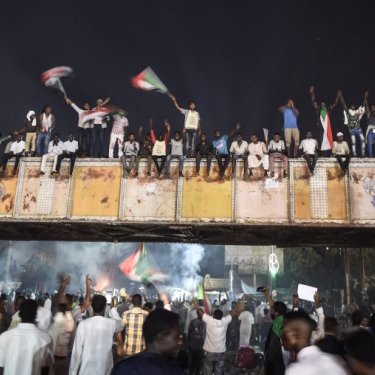A successful transition to democracy in Sudan needs press freedom

Reporters Without Borders (RSF) condemns a ban on media coverage of corruption and other acts of censorship by the military authorities now running Sudan, whose policies are blocking the Sudanese people’s desire for independent media, an indispensable component of any successful transition to democracy.
The deposed president, Omar Al-Bashir, has been in prison since 16 April but the Military Transitional Council now in charge is maintaining a close control over what the media report.
The media regulatory agency, which is controlled by the transitional authorities, has just sent a letter to all Sudanese media outlets prohibiting the publication of any information about corruption. The ban was issued by Abdul Azim Awad – who has held on to his position as the media regulator’s secretary general – amid a wave of corruption complaints against many of the former regime’s leaders
“We unreservedly condemn this decision, which runs counter to the Sudanese people’s desire for a public debate of the highest quality at this pivotal moment in Sudan’s history, a debate without the authorities interfering and without the media being censored,” said Arnaud Froger, the head of RSF’s Africa desk. “We urge the transitional military authorities to abandon the old regime’s control over the media and to assist the development of a free and independent press instead of trying to keep a tight grip on editorial policies. There will be no successful transition to democracy without press freedom.”
The National Intelligence and Security Service (NISS) is no longer systematically seizing newspapers issues, as it did during the protests leading to Bashir’s removal. But the NISS and the former regime’s military commanders, who are in charge of the transition, continue to interfere in the work of journalists.
Al Midan reporter Mohamed Al-Fateh was arrested at Khartoum airport on 14 April because he was on a list of banned journalists.
Hiba Makawi was suspended from his position as a national radio reporter on 2 May because of a report critical of the NISS. Certain politicians and civil society representatives who have been invited to take part in debates on the public broadcast media are often denied access by NISS agents.
Journalists are still a long way from overcoming the instinct to censor themselves, as the intelligence services and the former ruling party continue to control the public media and most of the privately-owned media.
Sudan is ranked 175th out of 180 countries in RSF’s 2019 World Press Freedom Index.



